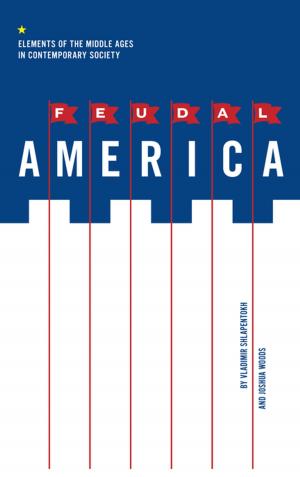Decolonizing Democracy
Transforming the Social Contract in India
Nonfiction, Social & Cultural Studies, Political Science, Politics, Civil Rights, History & Theory, Social Science, Gender Studies, Women&| Author: | Christine Keating | ISBN: | 9780271068084 |
| Publisher: | Penn State University Press | Publication: | August 18, 2011 |
| Imprint: | Penn State University Press | Language: | English |
| Author: | Christine Keating |
| ISBN: | 9780271068084 |
| Publisher: | Penn State University Press |
| Publication: | August 18, 2011 |
| Imprint: | Penn State University Press |
| Language: | English |
Most democratic theorists have taken Western political traditions as their primary point of reference, although the growing field of comparative political theory has shifted this focus. In Decolonizing Democracy, comparative theorist Christine Keating interprets the formation of Indian democracy as a progressive example of a “postcolonial social contract.” In doing so, she highlights the significance of reconfigurations of democracy in postcolonial polities like India and sheds new light on the social contract, a central concept within democratic theory from Locke to Rawls and beyond. Keating’s analysis builds on the literature developed by feminists like Carole Pateman and critical race theorists like Charles Mills that examines the social contract’s egalitarian potential. By analyzing the ways in which the framers of the Indian constitution sought to address injustices of gender, race, religion, and caste, as well as present-day struggles over women’s legal and political status, Keating demonstrates that democracy’s social contract continues to be challenged and reworked in innovative and potentially more just ways.
Most democratic theorists have taken Western political traditions as their primary point of reference, although the growing field of comparative political theory has shifted this focus. In Decolonizing Democracy, comparative theorist Christine Keating interprets the formation of Indian democracy as a progressive example of a “postcolonial social contract.” In doing so, she highlights the significance of reconfigurations of democracy in postcolonial polities like India and sheds new light on the social contract, a central concept within democratic theory from Locke to Rawls and beyond. Keating’s analysis builds on the literature developed by feminists like Carole Pateman and critical race theorists like Charles Mills that examines the social contract’s egalitarian potential. By analyzing the ways in which the framers of the Indian constitution sought to address injustices of gender, race, religion, and caste, as well as present-day struggles over women’s legal and political status, Keating demonstrates that democracy’s social contract continues to be challenged and reworked in innovative and potentially more just ways.















